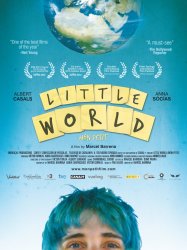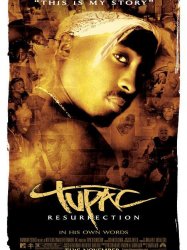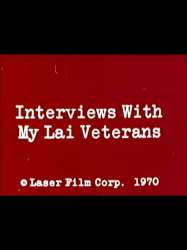Hang Up Your Brightest Colours is a British film of genre Documentary directed by Antony Thomas with Kenneth Griffith
Hang Up Your Brightest Colours (1973)

If you like this film, let us know!
Hang Up Your Brightest Colours is a 1973 film by Welsh actor and filmmaker Kenneth Griffith, about the life and death of Irish Republican leader Michael Collins. It was directed by Antony Thomas.
Although usually classed as a documentary, the film more closely resembles a dramatic monologue, with Griffith frequently delivering quotes by key figures such as David Lloyd George, Winston Churchill, and Collins himself "in character."
The film was commissioned by media mogul Lew Grade for transmission by ATV, the ITV region covering the Midlands he controlled at the time. Grade had, in fact, offered to fund whatever subject Griffith wanted to make, but when he viewed the finished film, he refused to show it. In his memoirs, Griffith claimed that Grade was unofficially instructed not to offer the film to the IBA for network transmission, so that the Association would not have to reject it and therefore could be accused of political censorship. Griffith took legal action, received an out-of-court settlement and built his home - Michael Collins House - in Islington with the proceeds.
The film has been described as, "finest of all (of Griffith's) drama-docs," and, "more courageous and incendiary than the later Neil Jordan movie." It was first broadcast on BBC One in Wales only in 1993, and networked across the United Kingdom by BBC Two the following year.
Actors

Kenneth Griffith
(Himself)
Comments
Leave comment :
Suggestions of similar film to Hang Up Your Brightest Colours
There are 18 films with the same actors, 1 films with the same director, 8959 with the same cinematographic genres, 2422 films with the same themes, to have finally 70 suggestions of similar films.If you liked Hang Up Your Brightest Colours, you will probably like those similar films :

Trees Cry for Rain (1989)
, 33minutesGenres Documentary
Themes Films about religion, Documentaire sur une personnalité, Documentary films about religion, Films about Jews and Judaism

Jack Johnson (1970)
, 1h30Origin USA
Genres Documentary
Themes Sports films, Martial arts films, Boxing films, Documentary films about sports, Documentaire sur une personnalité
Actors Brock Peters
Rating71%





 , 3h5
, 3h5Directed by Sidney Lumet, Joseph L. Mankiewicz
Origin USA
Genres Documentary
Themes Films about racism, Documentary films about racism, Documentary films about law, Documentary films about historical events, Documentaire sur une personnalité, Documentary films about politics, Political films
Actors Paul Newman, Ruby Dee, Joanne Woodward, James Earl Jones, Clarence Williams III, Burt Lancaster
Rating81%





Film biographique sur Martin Luther King Jr..

When Stand Up Stood Out (2003)
, 1h18Genres Comedy, Documentary
Themes Documentaire sur une personnalité
Actors Lenny Clarke, Janeane Garofalo, Bobcat Goldthwait, Denis Leary, Colin Quinn, Steven Wright
Rating63%





Produced by Chad Sahley,the film portrays the smart yet gritty comedy of Boston, a veritable melting pot of people of very different backgrounds: the multi-ethnic working class and the hip, learned college crowd. In an interview for the film, Solimita commented that "Those two things right next to each other created an odd vibe - really smart people who also understand a dollar earned. The comedy just sort of percolated."

Girls Aloud: Home Truths (2005)
, 1hGenres Documentary, Musical
Themes Films about music and musicians, Documentary films about music and musicians, Documentaire sur une personnalité, Musical films
Actors Sarah Harding
Rating74%






Little World (2013)
Genres Documentary
Themes Films about children, Medical-themed films, Documentaire sur une personnalité, Documentary films about health care, Films about cancer, Films about disabilities
Rating78%





 , 1h5
, 1h5Directed by Pier Paolo Pasolini
Origin Italie
Genres Documentary
Themes Films about films, Films based on mythology, Documentary films about business, Documentary films about the film industry, Documentaire sur une personnalité, Films based on Greco-Roman mythology, Documentary films about films, Autobiographical documentary films, Films based on Greco-Roman mythology
Actors Gato Barbieri, Pier Paolo Pasolini
Rating66%





En 1969, Pasolini voyage à travers la Tanzanie et l’Ouganda à la recherche des décors et des personnages de son prochain film : une adaptation de L'Orestie" d’Eschyle dans l’Afrique contemporaine. Il commente à voix haute, interroge les visages, les paysages, les situations et lit de larges et significatifs passages d’Eschyle. Il confronte ses idées, ses notes de voyage avec un groupe d’étudiants africains installés à l’université de Rome. Le film ne verra jamais le jour, mais ces notes filmées (et montées) par le cinéaste offrent une médiation sur l’indépendance, les promesses de la démocratie et le passage de l’âge archaïque à la civilisation moderne.

Other Voices (1970)
, 1h40Origin USA
Genres Documentary
Themes Medical-themed films, Documentaire sur une personnalité, Documentary films about health care, Films about psychiatry, Films about disabilities

Tupac: Resurrection (2003)
, 1h52Origin USA
Genres Documentary, Musical
Themes Dance films, Films about music and musicians, Documentary films about music and musicians, Documentaire sur une personnalité, Hip hop films, Musical films
Actors Tupac Shakur
Rating78%





Le documentaire présente la vie de Tupac Amaru Shakur du point de vue du rappeur lui-même. Narrateur et protagoniste du film, il raconte sa vie, ses actions et son art avec ses propres mots. Un peu différent du DVD "Thug Angel", mais beaucoup plus apprécié.
 , 22minutes
, 22minutesDirected by Joseph Strick
Origin USA
Genres War, Documentary
Themes Politique, Documentary films about law, Documentary films about war, Documentary films about historical events, Documentaire sur une personnalité, Documentary films about health care, Political films
Rating73%





Le film apporte des témoignages de cinq soldats à propos du Massacre de Mỹ Lai intervenu en mars 1968 lors de la guerre du Viet Nam, et ayant fait plus de 500 victimes dont beaucoup de femmes, enfants et vieillards. Sur les 110 soldats qui ont participé au massacre, sept ayant démissionné de l'armée acceptent de témoigner, mais deux mentent en affirmant n'y avoir pas participé, et leur témoignage n'est finalement pas retenu. Sur les cinq autres, trois essayent de se justifier.
 Connection
Connection